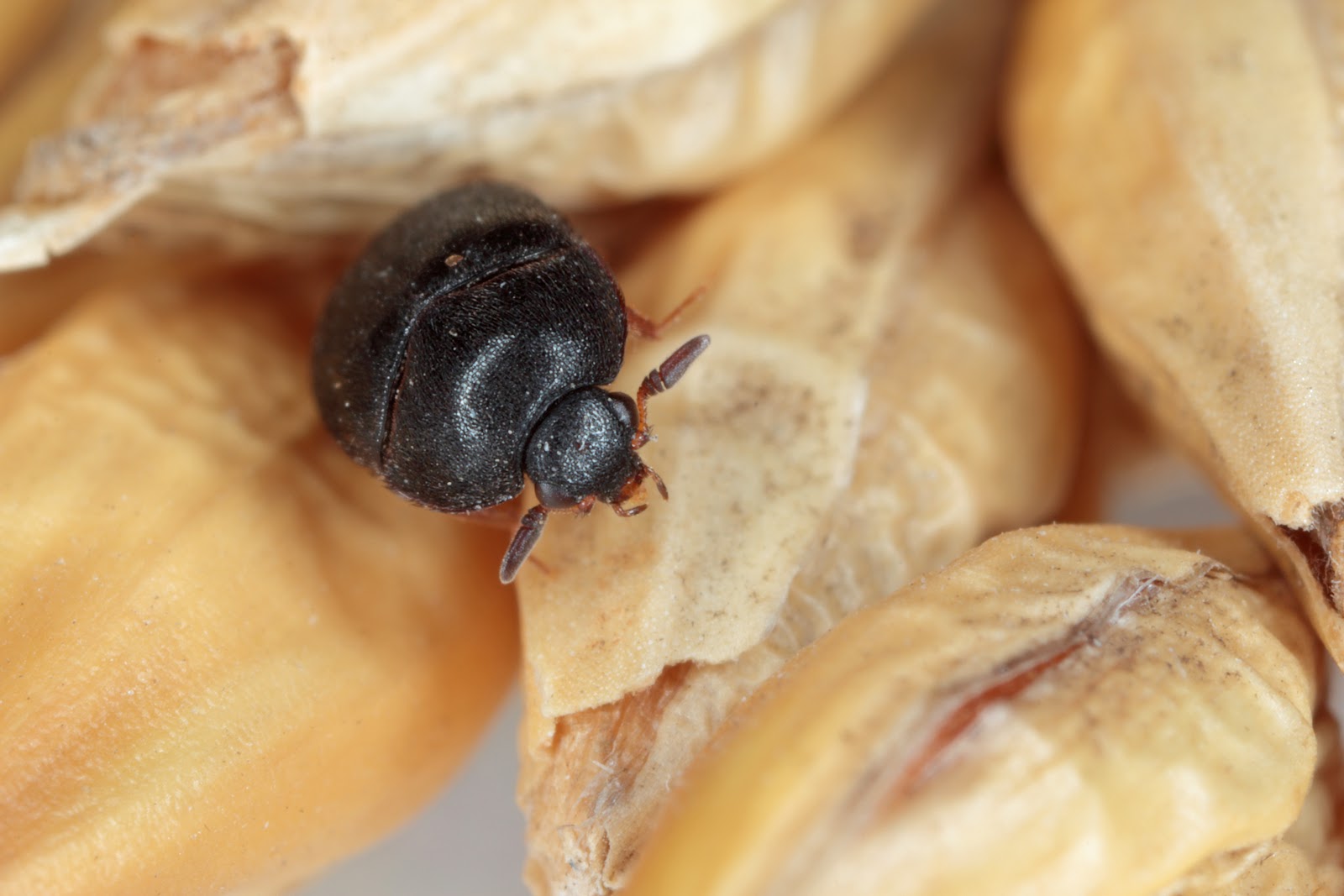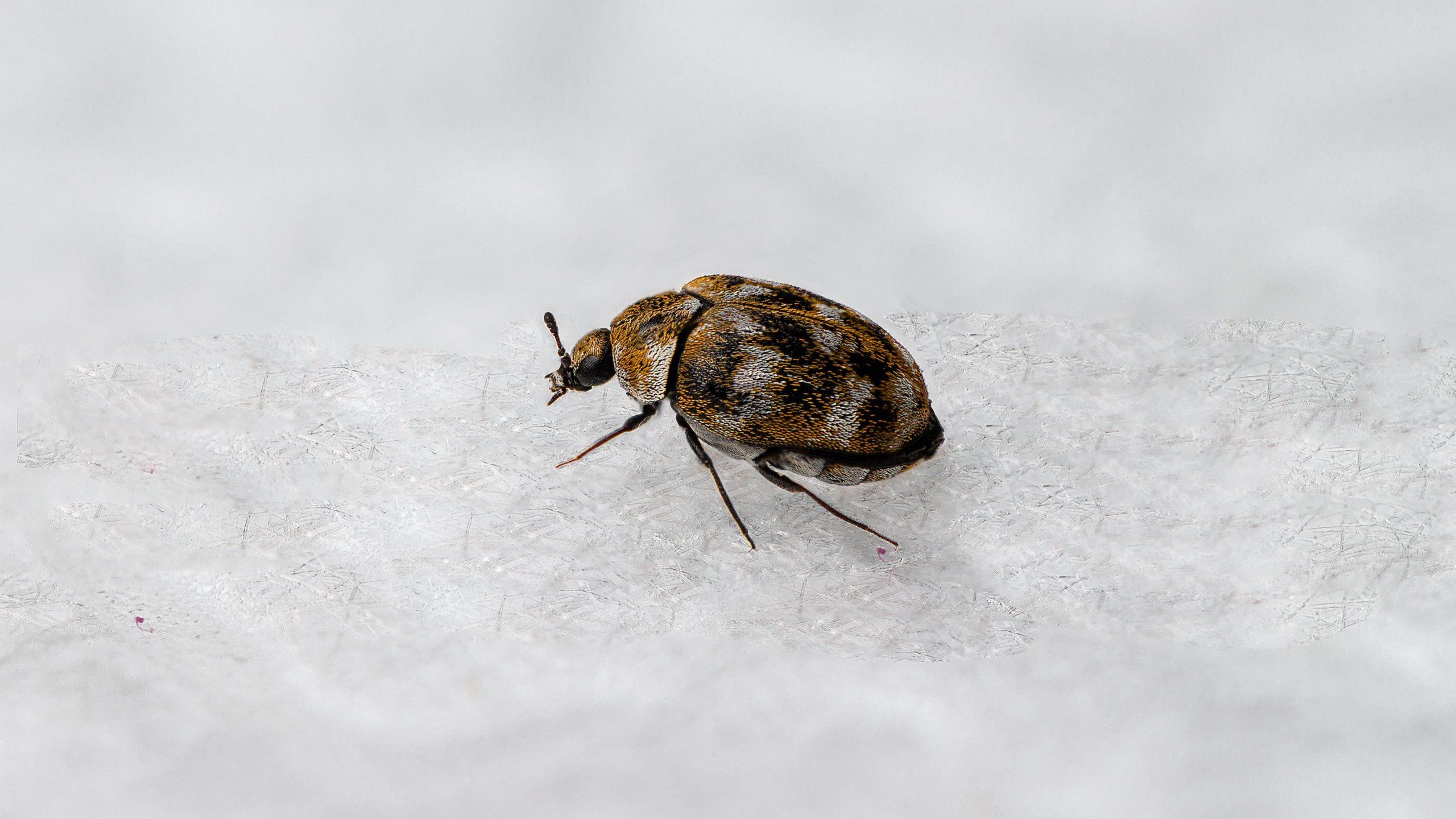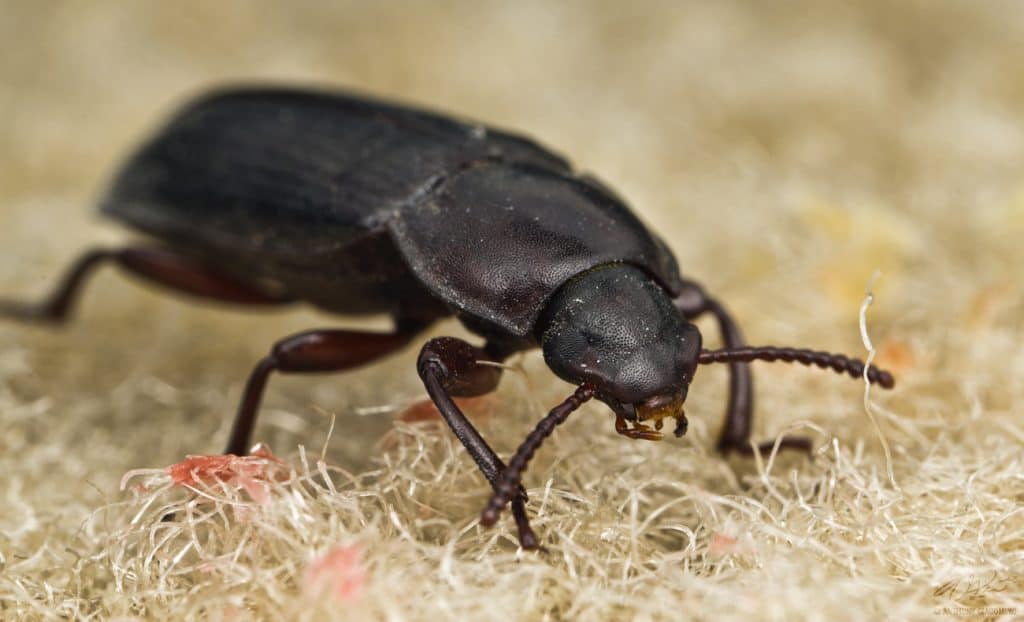Have you got frustrated with those pesky black carpet beetles?
Don’t worry; if you’re unaware of how to get rid of these tiny pests that create havoc on your carpets, clothing, and upholstery and are looking for a sure-shot cure to these, you have come to the right place.
Further, you’ll get to learn how to know the existence of these tiny creatures in your house. In this article, we’ll provide you with a guide that entails both chemical and natural solutions to carpet worms.
So why wait for more? Let’s dive in to return your worms-free home from black carpet beetles.
How Do You Get Rid of Black Carpet Beetles?

- Identify the Infestation: Black carpet beetles are hazardous to many things. Therefore, proper identification is key to effective pest control.
- Deep clean your home: Whenever you clean, thoroughly vacuum carpets, rugs, and upholstery, giving more attention to corners and edges, as these are the places where beetles generally hide.
- Launder Infested Fabrics: Ensure you wash and dry all affected clothing curtains and linens in hot water to kill larvae and beetles.
- Freeze vulnerable items: If you have fabrics that can’t be washed, consider sealing them in a plastic bag and freeze them for days; that’ll help eliminate beetles. Further, if your space has any gaps or cracks, seal them to prevent beetles from entering your home.
- Reduce Humidity: Use dehumidifiers to keep humidity levels low in your space, as black beetles thrive and prefer damp environments.
- Apply Insecticides: Use domestic Insecticides in cracks by following the product manual thoroughly. If the condition sustains, call professional pest controllers. Black beetle types are many, so opt for insecticides accordingly.
Why to Get Rid of Black Carpet Beetles?

- Damage to Belongings: These tiny creatures’ larvae feed on natural fibers like wool, silk fur, or leather. They have the potential to cause damage to the same, including carpets and other household items, which is definitely not good for pockets.
- Allergies: Some black carpet beetles have bristle-like hairs, which is a cause of allergic reactions in humans, leading to skin irritations and respiratory issues.
- Contamination: These beetles are roaming creatures whose larvae can leave feces or other debris in stored food products, hence making them unfit for consumption.
- Risk of Spreading: Black Carpet beetles spread very rapidly; therefore, if left unchecked or ignored, they can spread to other areas of the home, leading to infestation on a wider level.
Chemical and Natural Treatment
1. Chemical Options
- Insecticides: Opt for insecticides labeled as black carpet beetle control. Follow thoroughly the manual instructions for mixing and using. Apply the insecticides on cracks, crevices, and other areas suspected of beetle homes.
- Sprays: Nowadays, aerosol sprays are popular; use them on visible beetles. Spray directly onto them or refer to the instructions provided. Note these aren’t for widespread infestations.
- Pest Control: If things have gone out of your hands, the best chemical treatment is pest control. They are professionals and will use strong Insecticides and monitoring, too.
How to Use Insecticides at Home Safely?
- Firstly, read the manual and product label instructions thoroughly.
- Protective apparel, gloves, and masks are necessary when dealing with chemicals.
- Keep children and pets, if any, away from treated areas.
- Do ventilate the treated area after application.
2. Natural Options
- Diatomaceous Earth(DE): Among powerful natural repellents. Sprinkle food-grade DE in infested areas, don’t worry. These are harmless to humans but deadliest to insects.
- Freezing: If you have infested items in your home, seal them in plastic bags and freeze them for days. This will help kill all the life stages of black carpet beetles, such as eggs, larvae, and adults.
- Hot water treatment: If you have apparel or fabric infested with black carpet beetles, wash them in hot water and dry them on high heat. This kills beetles and their larvae.
- Cedar Oil: Effective while being aromatic. Use cedarwood products or oil in closets and other areas from where these creatures might enter.
Conclusion
Eliminating these tiny black creeps isn’t longer tedious. You can use any of the methods mentioned above, whether chemical or natural, to achieve the same.
Remember, the duration to eliminate them varies with the method you use and the severity of the infestation, so be patient and gradually see these creeps disappear.
Hope the article helps! If you have any query comments down below, we’ll resolve them at the earliest.
Frequently Asked Questions
How Do You Refrain Black Carpet Beetles from Returning?
To refrain from an infestation, store your apparel and fabrics in wardrobes, seal cracks and gaps in your home, and try to maintain a minimum humidity level in your space. Remember, vacuuming and cleaning your home is a crucial task that further helps eliminate any hidden spots.
Can Black Carpet Beetles Cause Health Issues?
Black carpet beetles don’t have the potential to harm humans directly. Still, if the bristle-like hairs are on their larvae, it can cause skin irritations and allergic conditions in some individuals. Therefore, it’s necessary to evacuate them from their homes to maintain a healthy and safe ambiance.
Are Cedarwood Effective in Eliminating Black Carpet Beetles?
Absolutely, cedarwood products or oil works as an amazing natural repellent against black carpet beetles. Consider keeping cedar sachets in closets, storage areas, and other expected spaces from where these beetles might enter. Remember, if your space has prior infestations, then additional treatment may be required.
In What Time Can These Black Carpet Beetles Be Eliminated?
Well, there isn’t any stipulated duration during which these will surely get eliminated. However, the duration depends on the infestation level and the effectiveness of the method being used to cure the same. Generally, it may take a few weeks to a month to eliminate these tiny creeps.

